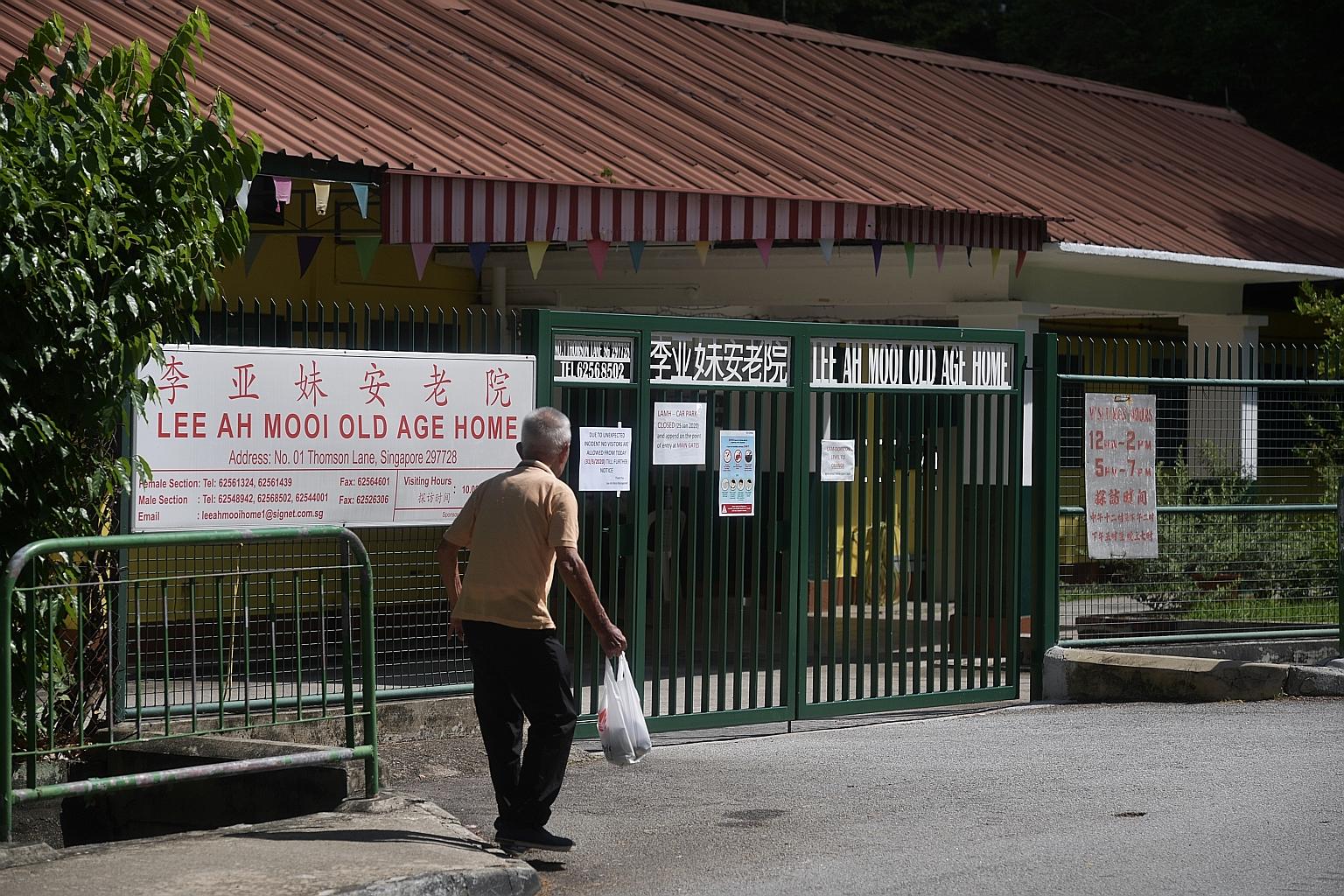Coronavirus: Protect seniors as they are most vulnerable, say experts
Sign up now: Get ST's newsletters delivered to your inbox

Since the emergence of a cluster at the Lee Ah Mooi Old Age Home, the Ministry of Health and the Agency for Integrated Care have introduced stricter measures for nursing homes in Singapore.
ST PHOTO: KUA CHEE SIONG
While young people can also fall severely ill from the coronavirus, evidence so far indicates that seniors remain the most vulnerable group, said experts.
Professor Dale Fisher, senior infectious diseases consultant at the National University Hospital (NUH), said that current data shows that the Covid-19 death rate is age-related, noting that the mortality rate is 6 per cent for people aged 60 and older and 15 per cent for people aged 80 or above.
"Containment of Covid-19 is important for everyone as serious illness and deaths are there even in younger people," he said. "But we need to protect the vulnerable because they are more likely to die."
Associate Professor Hsu Liyang, epidemiologist and infectious diseases specialist from the NUH Saw Swee Hock School of Public Health, similarly said it was crucial to protect the elderly "because of the higher risk of complications and death".
As of yesterday, all six patients who have died from Covid-19-related complications in Singapore were above 60. The youngest was a 64-year-old man and the oldest was an 88-year-old man.
All six patients also had at least one pre-existing health condition.
Several of the measures taken in Singapore have been targeted specifically at seniors.
Activities for seniors were suspended on March 10, and since the emergence of a cluster at the Lee Ah Mooi Old Age Home, the Ministry of Health and the Agency for Integrated Care have introduced stricter measures for nursing homes in Singapore.
Visitors are no longer allowed at all nursing homes until the end of the month, and nursing homes with more than 200 beds are also required to implement split zones.
But experts also note that prolonged isolation as a result of social distancing may negatively impact senior citizens' mental health.
"Older persons who live alone or spend a lot of time alone at home tend to feel lonely. It is this feeling of loneliness that may put the elderly at higher risk of having depression," said Dr Yao Fengyuan, consultant and chief of geriatric psychiatry at the Institute of Mental Health.
Dr Yao also advised seniors to stay connected with their friends and family through regular calls and text messages.
He advised families who live together to practise patience with one another, adding that "physical distancing does not mean emotional distancing".
"With a little compassion, staying home together could be an opportunity to build better relationships with one another," he said.


